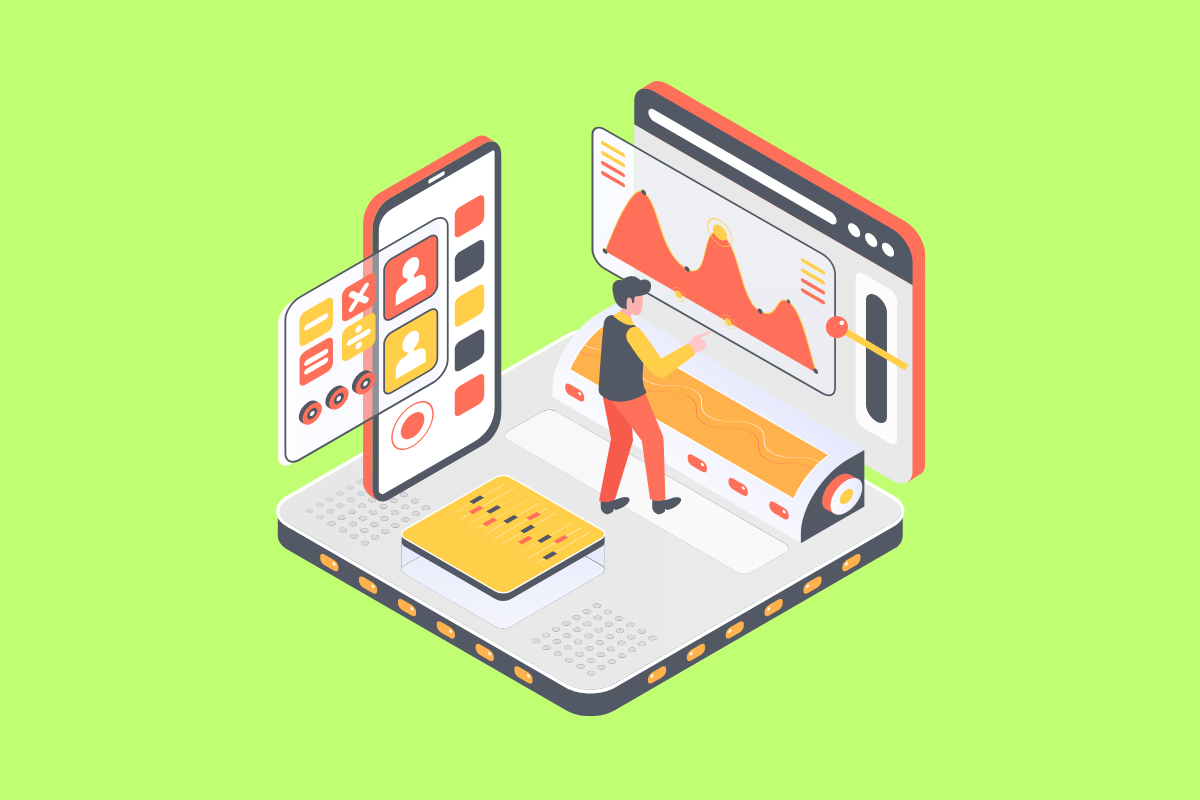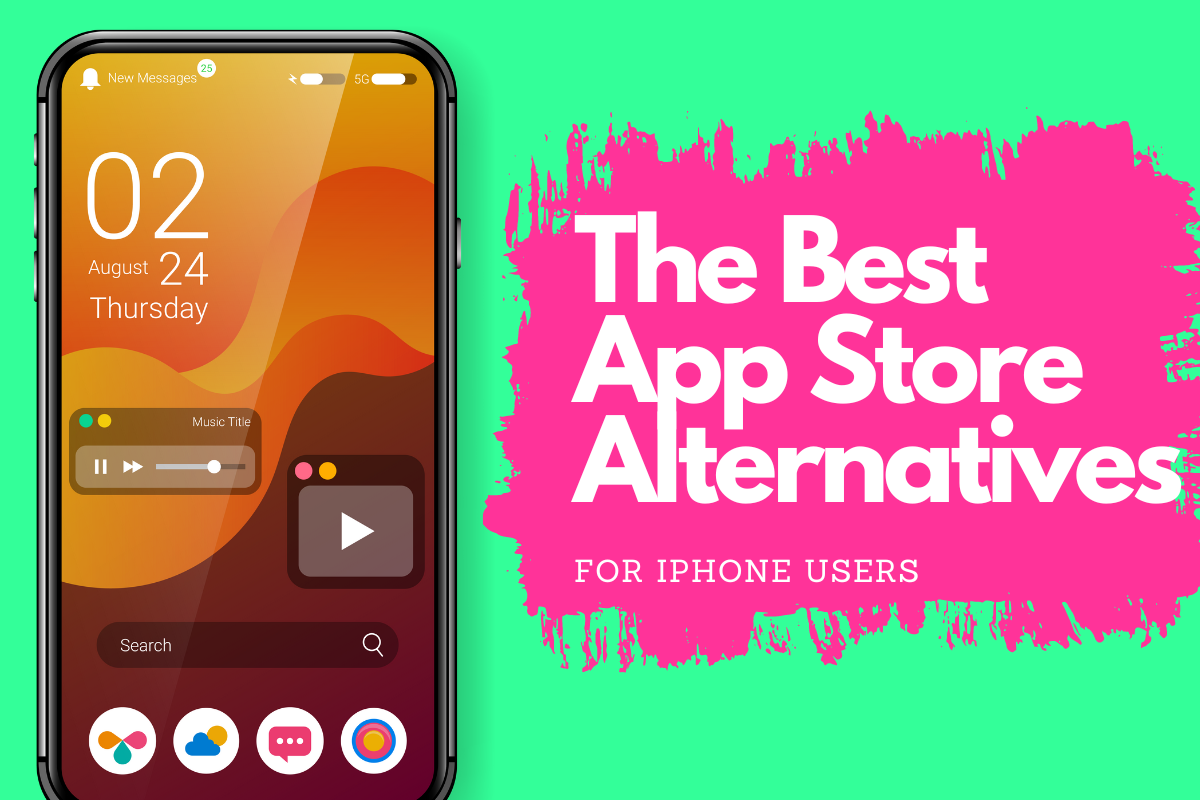iOS 17.4 will allow iPhone users in the EU to sideload applications. But what are the best alternatives to Apple’s App Store for applications and games?
Apple’s approach to how you download apps onto its iPhone (and iPad), traditionally, has been tighter than my Uncle Barry when Christmas comes rolling around. But thanks to the EU, Apple has now been forced to open up the ability to sideload apps onto iPhone and other iOS devices.
And if you’re keeping count, that’s 2 and 0 for the EU vs Apple – the first was its move to force Apple to adopt USB C.
And this is a good thing, indeed, because Apple – in its infinite wisdom – loves to ban apps for no good reason. A few years back, it banned all applications associated with vaporizers, so if you owned a PAX 3 or a Crafty Plus vaporizer, you could no longer program it with your iPhone.
Well, Apple’s days of being mom over what apps you can and cannot run on your iPhone are over (at least for users in the EU, anyways). But once you have this freedom? Where in the heck do you download apps from, if not the App Store?
Simple: you do what jailbreak fans have been doing for years: you download and install alternate app stores and market places on your iPhone. Here’s a breakdown of the best App Store alternatives right now.
Best App Store Alternatives For iPhone Apps & Games

TutuApp:
Offers tweaked apps, modified games, and emulators. Often requires no jailbreak, but involves signing certificates that can expire.
- Pros: Free, wide app selection, user-friendly interface.
- Cons: Security concerns, potential app malfunctions, relies on expiring certificates, violates Apple’s terms.
Cydia:
Description: Primarily for jailbroken iPhones, offering access to a vast repository of unofficial and tweaked apps.
- Pros: Largest selection of jailbreak tweaks and apps, customization options.
- Cons: Requires jailbreaking (compromising security), high security risks, potential app instability, violates Apple’s terms.
Amazon Appstore:
Primarily for Android devices, but offers a curated selection of iOS apps too. Often requires an Amazon account.
- Pros: Official app store, good security, potential deals and discounts.
- Cons: Limited iOS app selection compared to Apple’s App Store, may not have the latest versions.
AppValley:
Offers tweaked apps, modified games, and emulators. Often requires no jailbreak, but involves signing certificates that can expire.
- Pros: Free, wide app selection, user-friendly interface.
- Cons: Security concerns, potential app malfunctions, relies on expiring certificates, violates Apple’s terms.
Aptoide:
Community-driven app store offering a vast library of apps, including official and unofficial ones. Requires caution due to its open nature.
- Pros: Large app selection, potential access to hard-to-find apps.
- Cons: High security risks due to unverified apps, potential malware, requires technical knowledge to navigate.
TweakBox:
Offers tweaked apps, modified games, and emulators. Previously had security vulnerabilities, use with caution.
- Pros: Free, user-friendly interface, popular tweaked apps.
- Cons: Security concerns, potential app malfunctions, violates Apple’s terms, relies on expiring certificates.
GetJar:
Primarily for older devices, offers a limited selection of iOS apps.
- Pros: Official store, potential compatibility with older iPhones.
- Cons: Limited app selection, outdated apps, not recommended for newer iPhones.
Things To Keep In Mind
Now that you’re free to download applications from third-party sources outside the App Store, there are a few things to keep in mind. Not all third-party app stores are run with the same kind of security-focussed vigour as Apple’s.
Google Play, you know, the one run and managed by Google, has plenty of issues with malware and nefarious applications. And that’s an app store owned and managed by a multi-billion-dollar tech company.
For this reason, whenever you’re downloading applications, games or any kind of content from non-Apple sources, it pays to keep a few things in mind:
Verify the Store’s Reputation:
- Research: Investigate the app store’s history, user reviews, and security practices.
- Stick to well-established stores: Opt for known, reputable names with positive feedback.
- Avoid obscure sources: Steer clear of unfamiliar or untrusted app stores.
Scrutinize the App Itself:
- Read reviews: Look for genuine user reviews, highlighting both positive and negative experiences.
- Check developer info: Research the developer’s background and previous apps.
- Review permissions: Be wary of apps requesting excessive or unusual permissions.
- Look for red flags: Avoid apps with grammatical errors, typos, or unclear descriptions.
Prioritize Security:
- Enable strong passwords: Implement robust passwords and two-factor authentication.
- Update regularly: Keep your phone, antivirus software, and apps updated with the latest patches.
- Scan before installing: Use a reputable antivirus or antimalware scanner to check downloaded files.
- Backup regularly: Create regular backups of your phone’s data in case of issues.
Understand the Risks:
- Potential malware: Third-party apps may harbor malware that steals data or damages your device.
- Privacy concerns: Unregulated stores may have lax data privacy practices.
- App functionality: Downloaded apps might not function as intended or be compatible with your device.
- Terms of service violations: Using apps violating Apple’s terms could lead to account restrictions.


